|
From Jordan Powell, MPH Epidemiologist | District Health Department #10 Our jurisdiction’s daily cases per million and overall percent positivity have decreased since the last update. We do continue to see a decrease in cases – there was 13.6% decrease when comparing the most recent 7 days (10/20-10/26) to the 7 days previous (10/13-10/19). As of today, all of our counties remain in the high transmission level categories. There are currently 182 confirmed Delta variants in our jurisdiction: 18 in Crawford, 2 in Kalkaska, 2 in Lake, 3 in Manistee, 44 in Mason, 32 in Mecosta, 15 in Missaukee, 11 in Newaygo, 25 in Oceana, and 30 in Wexford. Our hospitals continue to experience elevated capacity levels, as there are 8 COVID-19 inpatients in Munson Cadillac, 10 in Munson Grayling, 5 in Munson Manistee, 14 at Spectrum Health Big Rapids, 7 at Spectrum Health Gerber Memorial, and 5 at Spectrum Health Ludington.
0 Comments
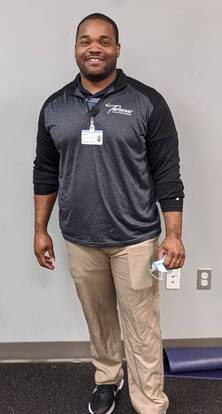 Tamarac Fitness Instructor Mychael King Tamarac Fitness Instructor Mychael King Tamarac’s newest fitness expert focuses on basics to help people build long-term strength, endurance FREMONT, Mich. (Oct. 27, 2021) – COVID-19 brought Tamarac’s newest fitness specialist and his family back to West Michigan. For Mychael King, relocating from the metro Detroit and mid-Michigan areas has allowed him to be closer to family – and doing what he loves most. “Helping people achieve their fitness goals in a safe manner by training basic movement patterns is what I love doing,” says King, who started working at Tamarac this summer. “My goal is to improve the dysfunctional movement patterns that impair good posture and function. I like to work on a person’s hinge technique so that the hips and back muscles are engaged in a manner that reduces the risk for injury and prevents future injury. I use various methods to improve one’s ability to stand on one foot, holding a plank, and improving the fundamental movement patterns that are performed in daily activity. I hope to use my training to help correct the limitations that may cause pain and reduce the risk of injury, address dysfunction, and use science to safely activate muscles to strengthen them for the long term.” King’s focus on safety and fundamentals comes from his experiences as an athlete with asthma and injuries from training and sports. In high school, he loved to play sports but struggled with asthma. At Central Michigan University, where he was an All-Academic honorable mention shot putter, King began to build a foundation for strength and conditioning. After college, he began to make small steps to building endurance. He started with recumbent bikes, then progressed to intervals on the treadmill. King ran a 5K for the first time averaging an under-10-minute pace. King takes this philosophy of focusing on safety and basics into his practice as a fitness trainer. “Like a lot of things in life, the fitness journey is a marathon, not a sprint,” he says. “Start by crawling, and you’ll get there. How a person looks is not important. Without stability, endurance and strength, the risk of injury would go up. People need to do basic and fundamental movements.” The Midland native had moved for an opportunity in Farmington Hills. When the COVID-19 pandemic hit, King lost his job, along with more than 1 million Michiganders in Spring 2020. The setback gave King and his family the opportunity to relocate to West Michigan. His wife, Alexcia, is from Grand Rapids and during a visit home, the couple decided to move to the area. Today, they live in Muskegon with their 2-year-old son, Shiloh, not far from family. “We like the water, we like rivers, we’re close enough to a big city, and the people we’ve met have been very friendly,” King said. Though he’s a relative newcomer to the area, King says he feels a deep connection to and admiration for his Tamarac colleagues and Tamarac’s members. “Everyone has been welcoming and so friendly, and when I see them at Tamarac, they say, ‘Come here, let me give me a giant air hug,’” King says. “COVID has impacted all of us, and I can see the resiliency in those who come to Tamarac. The people who come here truly love Tamarac, they care about it, they’re very vested in this place. To be able to provide service to folks like that is truly an honor and a blessing. They’re going to be cheering you on. I truly don’t take that for granted.” Learn more about Tamarac at www.tamaracwellness.org, or call: 231.924.1600. Spectrum Health Expands Access to Monoclonal Antibody Therapy and Treatment of COVID-19 Patients
Mobile clinic offering Monoclonal Antibody Therapy to be at Ludington Hospital November 1 – 19, 2021 LUDINGTON, Mich., Oct. 26, 2021 – Spectrum Health is expanding access to monoclonal antibody (mAb) therapy in West Michigan and a mobile infusion clinic offering the COVID-19 treatment will be onsite at Spectrum Health Ludington Hospital November 1 to 19, 2021. The mobile clinic will be stationed in the parking lot east of the Emergency Department during the two-week period. Treatments are by appointment only because supplies and resources are limited. If administered within 10 days of onset of COVID-19 symptoms, the one-time therapy may decrease disease progression and reduce the risk of requiring hospitalization. The treatment is administered through intravenous infusion, delivering medication directly into a patient’s bloodstream. Patients can call the Spectrum Health COVID-19 Infusion Clinic at 616.391.0351 to schedule. The team will help navigate eligibility and supply, and when possible, schedule treatment at the mobile unit. The unit has three treatment areas and can accommodate up to 12 people per day. “Spectrum Health Ludington Health is pleased to provide our monoclonal antibody program to communities in West Michigan, including in the Ludington area and Oceana County, and particularly to our most vulnerable populations,” Ludington Hospital President Drew Dostal said. “With our mobile clinic, Spectrum Health is bringing care directly to the patients who need it most. We are hopeful that the supply of antibodies will allow us to treat as many people as possible.” Spectrum Health also is increasing efforts to inform underserved and disadvantaged communities about this treatment option through grassroots community outreach. This builds on Spectrum Health’s established efforts throughout the pandemic to reach the underserved with information about COVID-19 prevention, treatment and vaccine availability. Physicians also will be equipped with information to share with patients when they receive positive test results. While Spectrum Health as a whole now has the capacity to treat up to 400 patients weekly, the number of patients treated is dependent on monoclonal antibody supply. Monoclonal antibodies are available under an emergency use authorization granted by the FDA during the COVID-19 pandemic. Spectrum Health relies on federal and state supply distribution and is experiencing constraints from a national shortage. The ability to offer treatment can change from week-to-week. The mobile clinic has been outfitted to provide monoclonal antibody infusion. It will travel to COVID-19 hot spots throughout West Michigan, as well as serve those in the community who may not be able to seek treatment at Blodgett Hospital, where Spectrum Health opened its COVID-19 Infusion Clinic for mAb treatment in December 2020. The mobile unit is expected to change locations on a regular basis to better reach underserved and disadvantaged communities. The expansion is driven by a partnership with the Michigan Department of Health and Human Services (MDHHS) and the U.S. Department of Health and Human Services (HHS). On March 17, 2021, HHS announced it was investing $150 million to increase access to mAb therapy for high-risk patients in underserved and disadvantaged communities across the country. Spectrum Health was among the first health care partners to join this national effort to equitably expand access to monoclonal antibody therapy and has been a national leader in policy, education, and dissemination of this treatment. Monoclonal antibody therapy is the first COVID-19 treatment granted emergency use authorization by the U.S. Food and Drug Administration for outpatient use. The therapy has been shown to help high-risk COVID-19 patients avoid hospitalization and recover at home. The Blodgett Hospital monoclonal antibody clinic in Grand Rapids and Spectrum Health Lakeland in St. Joseph have treated more than 2,400 patients to date. Spectrum Health is supported by KPMG and sponsored by HHS as part of the federal effort to help end COVID-19 and improve health equity in underserved and disadvantaged communities across the country. The Initiative now includes over 25 prototype models, supported by KPMG and sponsored by HHS, to increase access to mAb therapy at over 80 infusion locations in 16 states. How to Access mAb Treatment at Spectrum Health All patients who test positive for COVID-19 and are interested in learning more about mAb treatment at Spectrum Health, can call 616.391.0351 for expedited referral to the most appropriate Spectrum Health treatment location. DHD#10 now authorized to give Moderna and Johnson & Johnson booster doses
October 25, 2021 – District Health Department #10 (DHD#10) has received authorization to begin giving booster doses of Moderna and Johnson & Johnson COVID-19 vaccines. Eligible individuals should plan to get booster doses six months after primary mRNA series or two months after single dose of Johnson & Johnson. “We anticipated that this decision would be made and are prepared to provide booster doses to all eligible individuals,” stated Kevin Hughes, Health Officer for DHD#10. “Individuals can also receive COVID-19 vaccines and booster doses from their healthcare providers and local pharmacies as well.” Following FDA approval, recommendations from the CDC’s Advisory Committee on Immunization Practices (ACIP) and the endorsement of the CDC director, the Michigan Department of Health and Human Services (MDHHS) is urging certain Michiganders to get a booster vaccine if they received the Moderna or Johnson & Johnson (J&J) primary COVID-19 vaccines. This includes people ages 65 and older; individuals 18 through 64 years of age at high risk of severe COVID-19 due to underlying health conditions; and those at high risk of COVID-19 due to occupational or institutional exposure. There are now booster recommendations for all three available COVID-19 vaccines in the United States. Eligible individuals may choose which vaccine they receive as a booster dose. Some people may have a preference for the vaccine type they originally received and others may prefer to get a different booster. CDC’s recommendations now allow for this type of mix and match dosing for booster shots. For individuals who received an mRNA (Pfizer-BioNTech or Moderna) COVID-19 primary vaccine, the following groups are eligible for a booster shot at six months or more after their initial series:
This list could be updated in the future. To schedule your COVID-19 vaccine or booster dose, go to www.dhd10.org/schedule or call 888-217-3904 for assistance. Self-schedule lab appointments now at Spectrum Health Gerber Memorial, Ludington Hospital
LUDINGTON/FREMONT, Mich. (Oct. 20, 2021) – Individuals can now go online to schedule outpatient lab appointments at Spectrum Health Ludington Hospital and Spectrum Health Gerber Memorial. “Spectrum Health is excited to offer online scheduling for outpatient lab appointments that individuals can do at their convenience, on their own time, with a few taps of a smartphone or clicks of a mouse,” said Julie Ward, Spectrum Health lab manager at Ludington Hospital and Gerber Memorial. “We encourage individuals to use this easy option of online scheduling. Not only is online scheduling designed to make health care more convenient for the families we serve, it can also help improve service on our end for a better experience.” To schedule a lab appointment online, go to mychart.spectrumhealth.org. Then schedule a lab appointment, and select a location, such as Ludington Hospital or Gerber Memorial. The service is for appointments at the hospitals in Ludington or Fremont.  From our friends at Headway Coalition It’s another Take Back Event this Saturday at Tamarac. This annual event and the drop boxes located at various locations throughout the county is part of the efforts by the Headway Coalition to curb youth access to prescription drugs. You know, those pill bottles we sometimes leave it the medicine cabinet then either forget about or maybe fail to keep track of how many are on hand? Headway’s research has revealed the scope of this problem locally so we all appreciate the action they’ve taken to collaborate with law enforcement, health care facilities and other entities in keeping drugs out of the hands of our youth. We asked Headway's Katherine Mater, Project Coordinator for Drug Free Communities, to deliver the info on the initiative Each year the Drug Enforcement Administration (DEA) promotes the National Prescription Drug Take Back Day through community events held nationwide. This annual event provides an important opportunity to educate communities on proper medication safeguarding measures as well as the importance of safe disposal of unused or expired prescription drugs. In efforts to address the increased ease of access and low perception of risk among Newaygo County youth, each year Newaygo County’s Headway Substance Abuse Prevention Coalition partners with local law enforcement and community agencies to provide this opportunity to residents of Newaygo County and surrounding areas. 43.9% of Newaygo County High School students report it is “easy or very easy” for them to get a Rx drug without a prescription. In addition, 22.3% of Newaygo County High School students report there is “little or no risk” to using Rx drugs without a prescription. It is critical to continue to educate Newaygo County youth, parents, and community members on the dangers of misused prescription drug use…and providing a specific community event that encourages and educates on proper medication disposal not only allows for that opportunity of education, it also gets hundreds of unused/expired medications out of homes and potentially out of the hands of youth in Newaygo County. To ensure Newaygo County residents have access to safe and proper medication disposal opportunities year round, the Headway Coalition also has 14 permanent medication collection sites located throughout the county Over the 10 years of collection from the permanent medication collection sites and 4 years of annual Take Back Events, more than 11,800lbs of unused/expired medications have been collected in Newaygo County. Thank you Ms. Mater. If you’re curious about Headway and their local efforts check out their fb site https://www.facebook.com/headwaynewaygo On Friday, October 29, 2021, the Newaygo County Compassion Home will be hosting their sixth Annual Gathering of Compassionate Friends Event. This free event will run from 6pm to 9pm at the Dogwood Center for Performing Arts in Fremont, Michigan. This year, we will again be featuring a silent auction, live entertainment and cocktails and hors d oeuvres. The auction will have inclusive packages and a boutique so everyone can join in on the bidding experience. This fund-raising event will also be an educational experience In addition to special family members of our guests, donors, volunteers and staff will share the experiences they encountered with the Newaygo County Compassion Home. All funds raised will go towards the sustaining of the Newaygo County Compassion Home in Fremont, Michigan benefiting everyone in the county as our loved one’s search for an end-of-life solution in a caring and loving environment. Please join us in making this an exciting and extravagant event. This event could not be possible without the generous support of area businesses and individuals. If you would like to learn about sponsorship opportunities, please contact Diane Rudholm at 231-750-0872 or email [email protected] Community members are invited to attend the free event. Guests must be 21 years of age or older. Please make your reservation by going to https://conta.cc/3uJfrAD or call 231-750-0872 by October 25, 2021, Fourth Event in Stronger Together Series Explores Hispanic/Latinx Culture and Experiences
On September 30, Fremont Area Community Foundation hosted its fourth Stronger Together Series virtual event with a conversation exploring what it means to be Hispanic/Latinx in Newaygo County. Carla Roberts welcomed the audience for her last Community Foundation event before her retirement as president and CEO on October 1. She explained the goals of the overall series, including amplifying marginalized or overlooked voices and exploring the ways differences enhance our community. Roberts also shared that the evening was focused on creating a safe space for honest conversations and encouraging all of us to grapple with misconceptions and consider new perspectives. “Hispanic/Latinx represents the second largest ethnic group in our county, but what does it mean to be of Spanish-speaking descent in an English-speaking area?” asked Roberts. “What does it mean to have a foot in two different cultures? And what misconceptions prevent our neighbors from feeling like they truly belong?” The moderator for the evening was Carlos Sanchez. Born in Mexico City, Sanchez is the director of the Latino Business and Economic Development Center at Ferris State University and active in many organizations and projects in West Michigan. “I’m excited just to share the stories we’re going to hear,” said Sanchez. “The folks that are invited to this panel are going to share their personal stories, and it’s not easy to share them. I hope the people who are watching right now gain knowledge, first of all, but also empathy for their stories.” The panel included Laura Rodriguez, director of the Croton Township Library; her son Benancio Rodriguez, currently a PhD student at UCLA; Juan Ochoa, owner of Peak Heating and Cooling; and Carolina Heredia-Contreras, a kindergarten teacher in Fremont Christian School’s Spanish immersion program. Sanchez began the discussion by asking panelists what it’s like to be Hispanic/Latinx in Newaygo County, while noting that “just like other cultures or other groups, Latinos are not monolithic. Our experiences are different.” Respiratory Virus, Pandemic, Flu Season guidelines for parents
From our friends at DHD#10: October 12, 2021 – With the school year well underway, District Health Department #10 wants to remind parents of the guidelines for when their children can attend or need to stay home from school or childcare. COVID-19 rates in our area continue to be high, especially in school aged children. We are also seeing higher than expected respiratory syncytial virus (RSV) activity. RSV is a common respiratory virus that usually causes mild, cold-like symptoms. Most people recover in a week or two, but RSV can be serious, especially for infants and older adults. October also marks the beginning of the influenza season, though the peak of the season is usually between December and February. “One of the most effective ways to keep illness out of schools is for those that are ill to stay home,” states Dr. Jennifer Morse, Medical Director for DHD#10. “In general, children should not go to school or childcare if they have a fever, diarrhea, vomiting, belly pain, or unusual rashes or sores. During the COVID-19 pandemic, RSV season, and influenza season, other concerning symptoms include new or worsening cough, wheezing, difficulty breathing, sore throat, body aches, extreme fatigue, and new stuffy nose/runny nose.” If your child is experiencing any of the symptoms listed above, he or she should be evaluated by a healthcare provider and not return to school unless told it is safe to do so. This may require testing for COVID-19 or other illnesses and if so, your child should not return to school while waiting for test results. It is important to tell your child’s school or childcare provider what your child was diagnosed with, as it is important for the safety and wellbeing of other students and staff members. If your child has been exposed to certain contagious illnesses, such as COVID-19, whooping cough, or certain other infections, then he or she may need to quarantine. Quarantine has been used for centuries to prevent the spread of infection by those that may be infected and contagious but not yet showing symptoms. There are now modified quarantine options approved by the health department that provide more opportunity for students to stay in school. These can be found here. It is highly recommended that students wear masks while at school. Many schools have made mask use “optional” in their buildings and at school activities; however, it is still recommended for your child’s and family’s safety that they wear a mask. Schools are not able to prevent your child from wearing a mask to protect him or herself even if mask-wearing is optional. Parents can also help by teaching their child how to properly wash their hands and to wash their hands frequently, especially before eating and after using the bathroom and blowing their nose. Parents can teach their children how to properly cover coughs and sneezes. If your child is eligible, get them vaccinated for COVID-19 and also get the vaccinated for influenza now and every fall. Eating a healthy diet, getting enough sleep, and staying active are also very important to protect against illness. For more information about keeping your child protected from COVID-19 at school, go here. 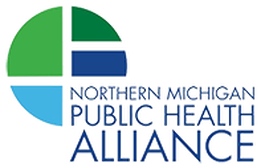 The Northern Michigan Public Health Alliance (NMPHA), is made up of 7 local health departments covering 31 counties. NMPHA provides leadership and facilitates the development of a common agenda, shared measurement, mutually-reinforcing activities, and continuous communication. This survey is intended for anyone who lives (permanent or temporary) in the 31 counties of Northern Lower Michigan. This survey can be taken online or via paper format. This survey will close Sunday, October 31 at 11:59 pm. This survey is available in English and Spanish. MiThrive community survey |
Archives
July 2024
Categories |
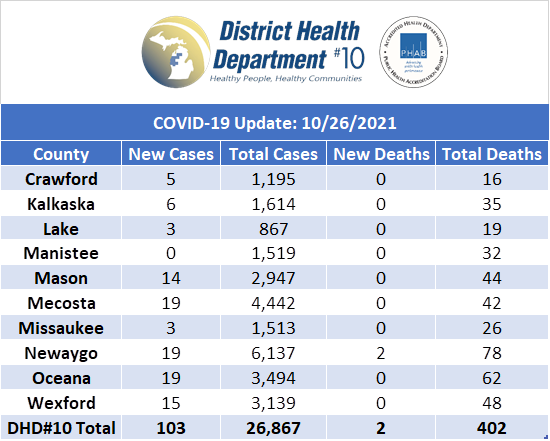
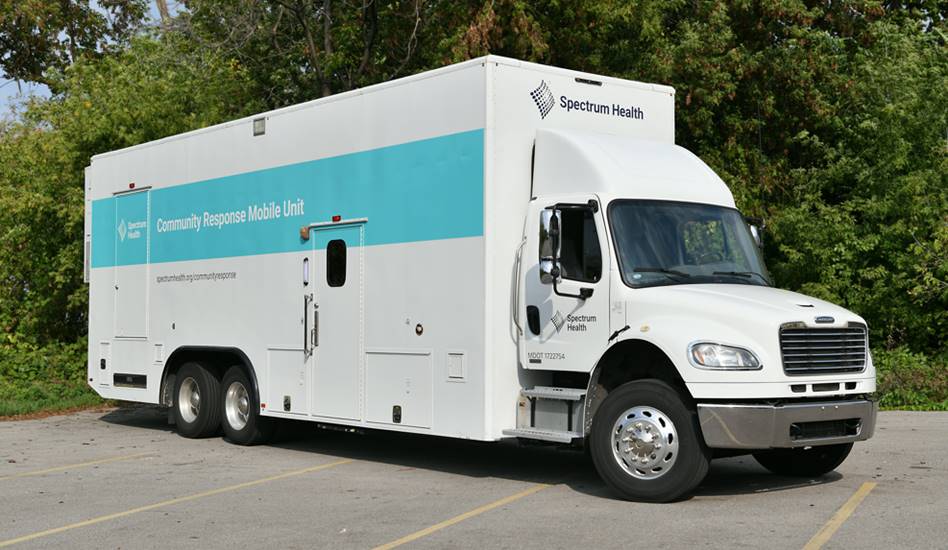

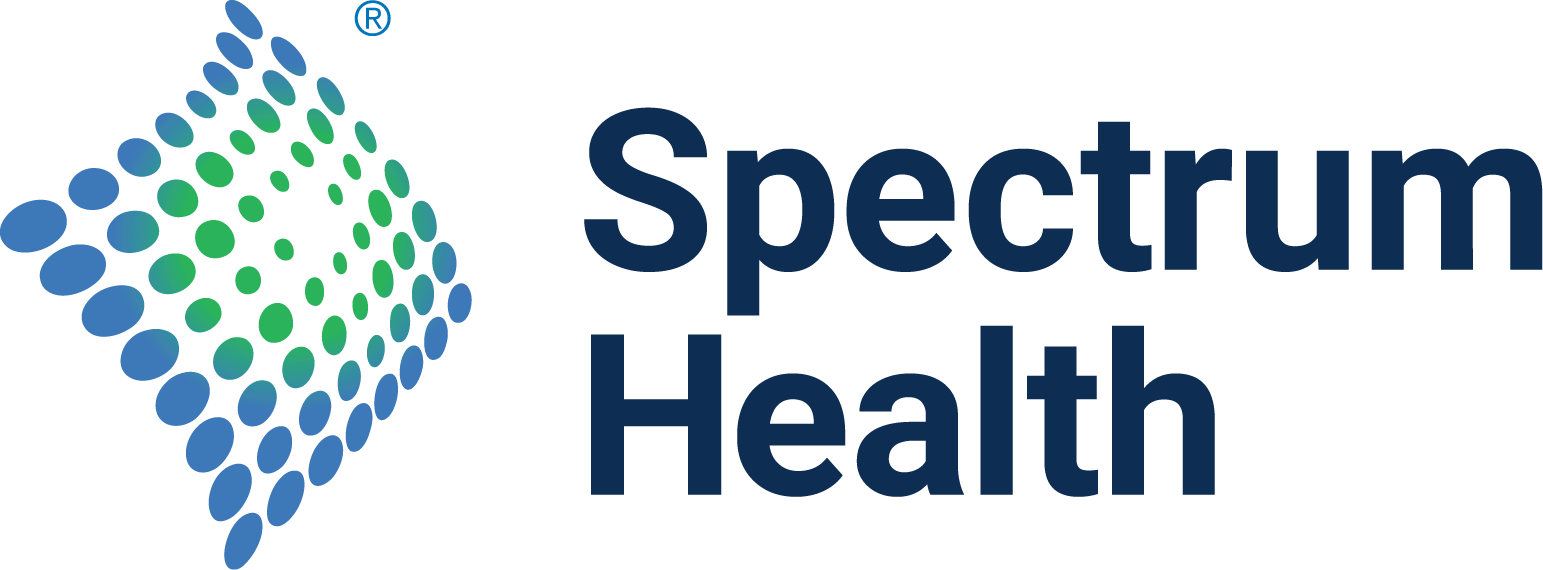
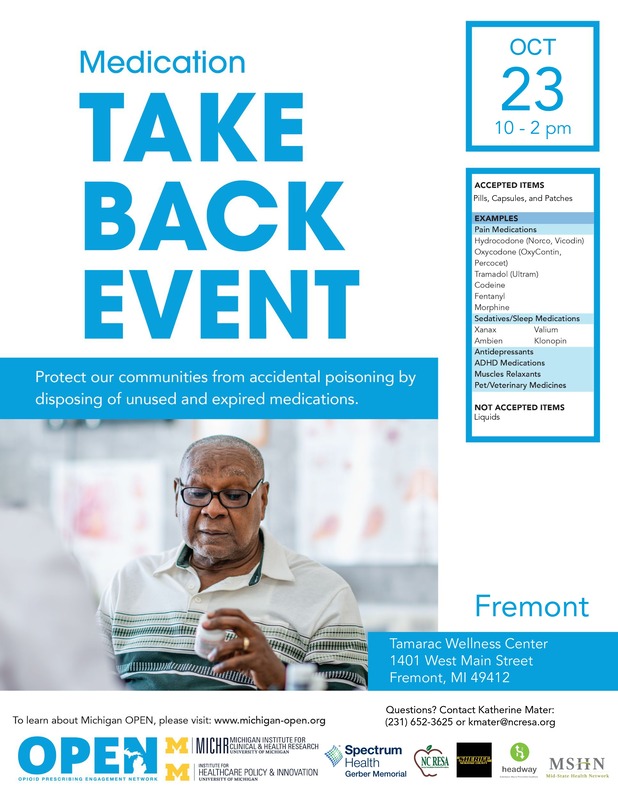


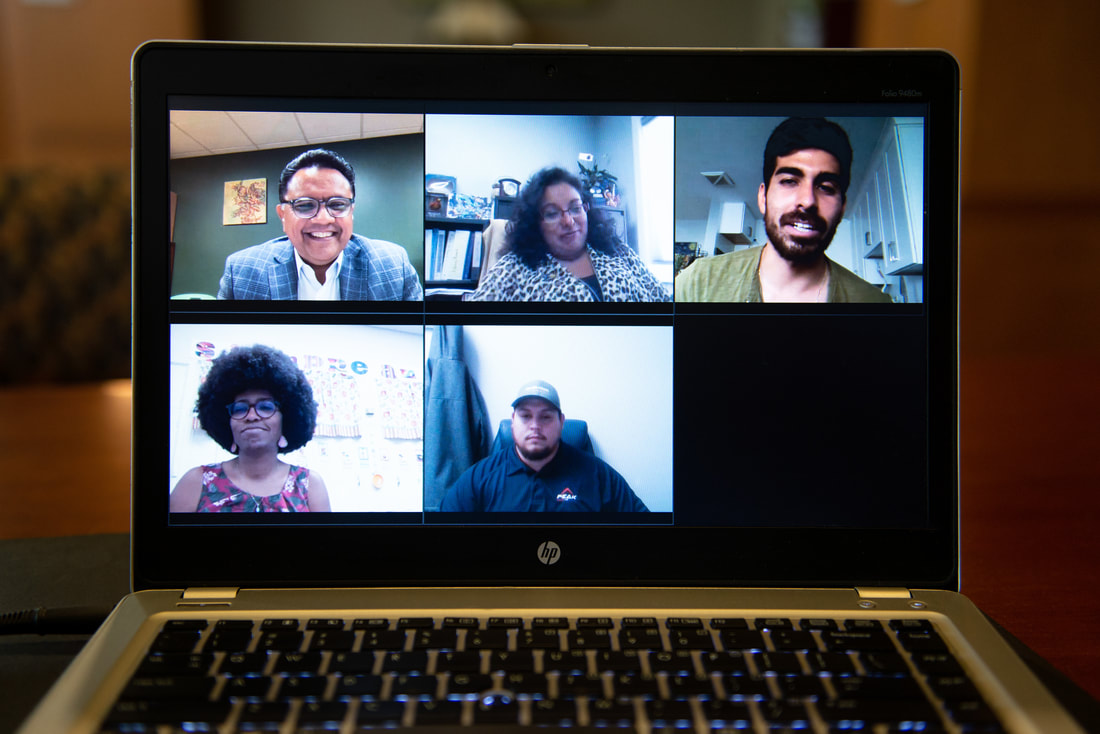

 RSS Feed
RSS Feed